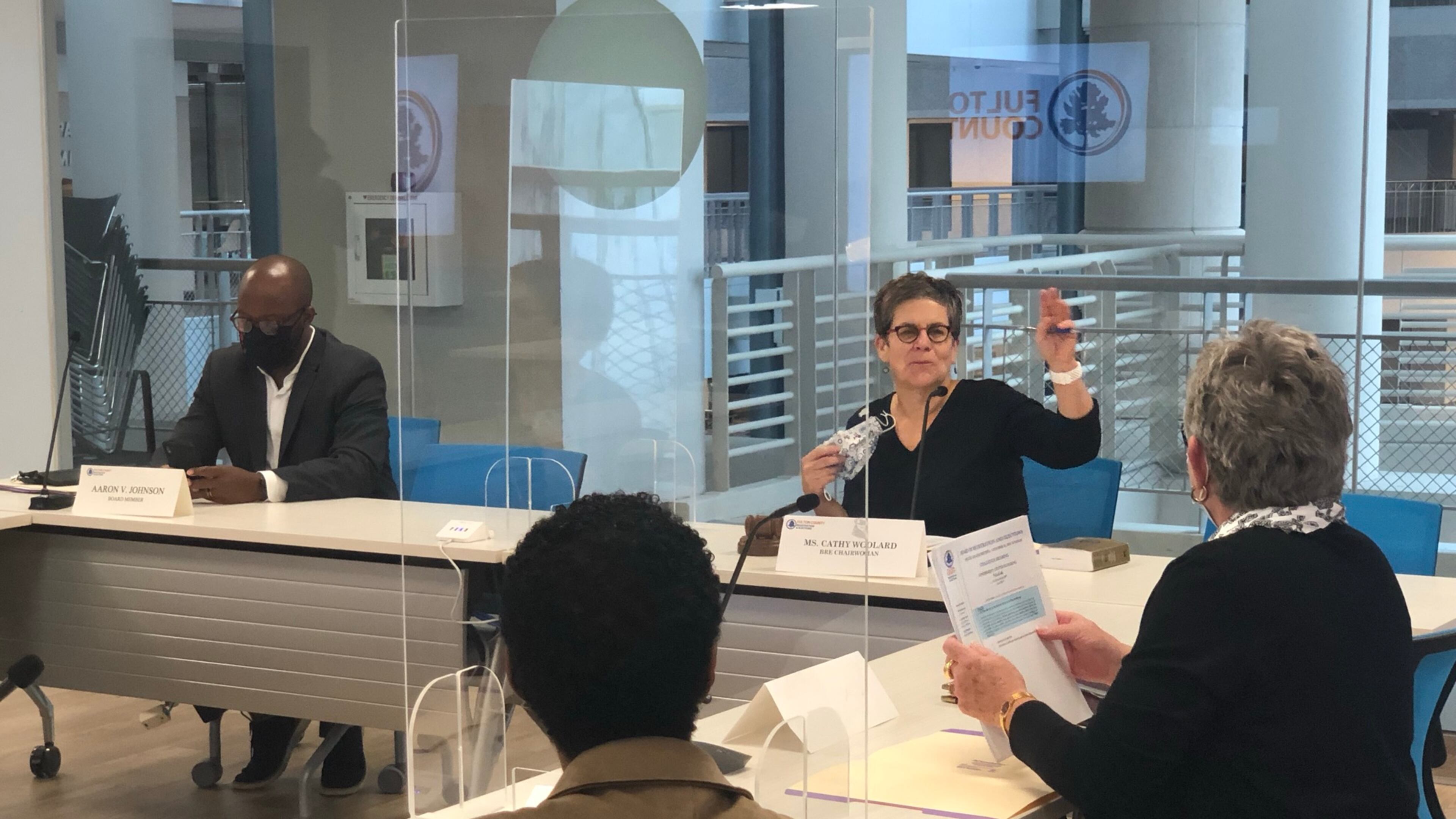Challenges to voter eligibility rejected ahead of Atlanta election

Efforts to disqualify hundreds of voters returned to Georgia on Thursday, a renewed attempt to challenge their eligibility under the state’s new voting law just before next month’s elections.
The Fulton County elections board voted unanimously to reject the move to cancel the registrations of 562 voters who might have moved. The two voters who brought the challenges didn’t show up at a hearing Thursday, and their list of voter names didn’t prove they were no longer legitimate voters.
The board’s decision comes after the Texas-based group True the Vote worked with members of the Republican Party to question the eligibility of 360,000 Georgia voters during runoffs for the U.S. Senate in January. Local election officials across the state ended up disqualifying just a few dozen ballots.
It’s unclear what prompted the voter challenges or whether they’re politically motivated, election officials said. The people who brought the challenges, Samuel Ambrose of Buckhead and Pauline Capps of Alpharetta, provided lists of names of people who filed change of address forms with the U.S. Postal Service.
“The burden is on the challenger to prove to us that there is a problem that this voter is not a voter. It’s not for us to try to find birth dates, to track people down and do all of that. They have to bring us the evidence,” said Cathy Woolard, chairwoman for the Fulton elections board.
Many of the questioned voters might have moved out of state, according to information provided to the board by the secretary of state’s office.
Of the 562 challenged voters, 363 were mailed notices last month asking them to cancel their Georgia voter registrations if they have moved. Voters who don’t respond by Nov. 2 will be designated “inactive” voters who will lose their Georgia voter registrations if they miss the next two general elections. Anyone who votes in a state where they don’t live could be prosecuted.
“The evidence that we have isn’t enough to 100% determine if these voters have moved out of state or weren’t qualified,” Fulton Elections Director Richard Barron said.
Voters might remain eligible in Georgia if they’re students or in the military temporarily living elsewhere, or if they retain Georgia as their primary residence.
State election officials canceled the registrations of 101,000 voters earlier this year who had either moved or hadn’t participated in elections since 2012. State law requires systemic cancellations every other year to remove ineligible or infrequent voters from the state’s rolls.
Individuals can also try to remove voters by filing complaints with their county election offices.
Georgia’s voting law, Senate Bill 202, allows any voter to challenge the eligibility of an unlimited number of voters in their county or municipality. County election boards must consider the claims within 10 days.
So far, voter challenges haven’t spread far beyond Fulton County this year. None has been filed in Cobb and DeKalb counties, and one is pending in Gwinnett County, according to their election offices.
Attempts by voters to file sweeping challenges to the eligibility of voters might be just beginning, said Aaron Johnson, a Fulton elections board member.
“I think it’s only going to get crazier next year” during elections for Georgia governor and the U.S. Senate, Johnson said.



